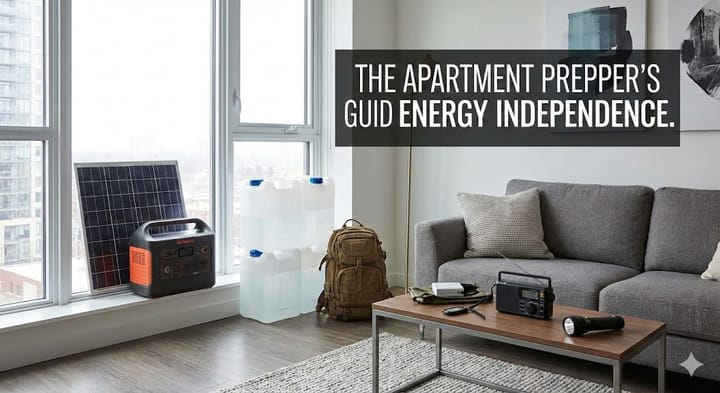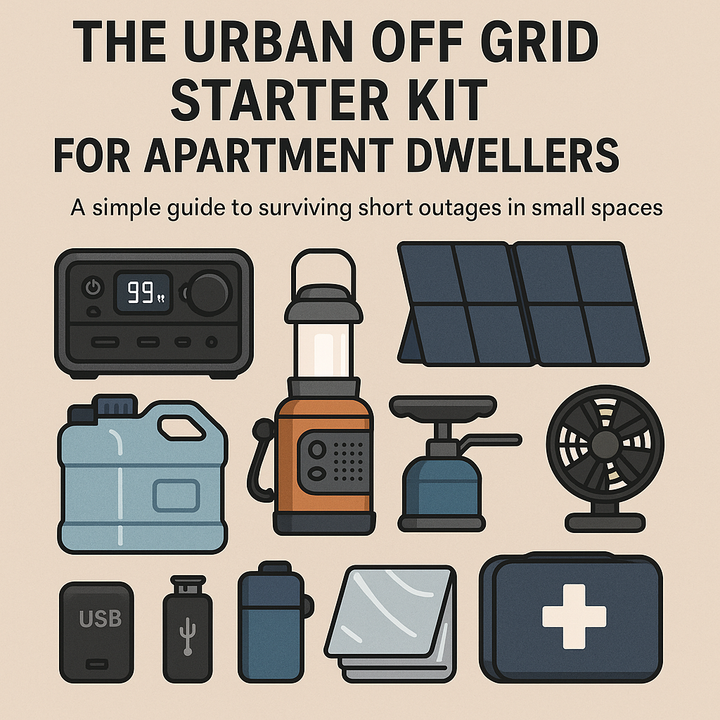How to Prepare for the Collapse of Society, like the Billionaires are doing...

In an era marked by escalating climate crises, geopolitical tensions, economic instability, and rapid technological disruptions, the specter of societal collapse looms larger than ever.
Headlines are rife with warnings. From environmental tipping points to AI-driven upheavals and resource wars.
A recent analysis of 5,000 years of civilization argues that global collapse is imminent unless inequality is addressed head-on.
“I’m pessimistic about the future,” he says. “But I’m optimistic about people.” Dr Kemp
But while doomsday scenarios might sound like dystopian fiction, they're prompting real action, from the ultra-wealthy fortifying their escapes to everyday folks rethinking their resilience.
Let’s explore what billionaires are doing to hedge against catastrophe and, more importantly, practical steps the average person can take.
Spoiler: It's not about hoarding gold in a bunker; it's about building sustainable habits and communities.
ON SURVIVAL is a reader-supported publication. To receive new posts and support my work, consider becoming a free or paid subscriber.
What the Billionaires Are Doing: Fortresses for the Few
The world's elite aren't waiting for the end, they're engineering their survival with staggering resources.
Tech moguls and financiers, sensing the fragility of modern systems, have poured billions into "apocalypse insurance."
This often means acquiring remote properties, constructing underground bunkers, and stockpiling essentials in locations insulated from chaos.
Take Silicon Valley's heavy hitters. Peter Thiel, co-founder of PayPal, has long eyed New Zealand as a safe haven, securing citizenship and land there amid fears of civilizational breakdown

Similarly, Meta's Mark Zuckerberg is building a massive compound on Kauai, Hawaii, rumored to cost over $270 million with features like blast-resistant doors and self-sustaining energy systems.

Reports suggest it's designed to withstand everything from pandemics to nuclear fallout, complete with underground shelters and farmland for food production.
This trend isn't isolated.
A 2017 New Yorker piece revealed that over 50% of Silicon Valley billionaires, including LinkedIn's Reid Hoffman, have invested in doomsday preps like fortified U.S. estates or New Zealand retreats.
Hoffman himself estimated this figure, highlighting hideaways as a hedge against societal unrest.
OpenAI's Sam Altman has stockpiled gas masks, antibiotics, and gold bars, while others like Oracle's Larry Ellison own entire Hawaiian islands.

New Zealand remains a hotspot, with clusters of elite bunkers around Wanaka, Hamilton, and Hanmer Springs, scenic, isolated areas favored for their distance from global hotspots.
Companies like Atlas Survival Shelters and Vivos specialize in luxury underground complexes, offering amenities like pools, gyms, and hydroponic gardens for $500,000 to $35 million per unit.

These aren't mere shelters; they're opulent redoubts with armed security, designed to house families and staff for years.
Critics argue this "bunker mentality" exacerbates inequality.
Author Douglas Rushkoff, after consulting with billionaires, described their plans as self-fulfilling prophecies.
Tech elites profiting from disruptive innovations while prepping to abandon the mess they helped create.
"The billionaire with the bunker in New Zealand isn't actually preparing for the apocalypse. Not really. He's telling us a story."
And as playwright David Mamet recently quipped, mocking Thiel's NZ dreams, these escapes might be more fantasy than feasible in a true global meltdown.
Politically incorrect as it may sound, substantiated by these reports: Billionaires aren't saving society; they're seceding from it.
Their actions underscore a harsh reality, wealth buys options the rest of us lack, but they also reveal vulnerabilities.
Bunkers can't fend off long-term ecological collapse or internal betrayals, like staff revolts in a lawless world.
What the Average Person Should Do: Resilience for the Rest of Us
If billionaires' strategies feel out of reach (and ethically dubious), fear not, preparing for collapse doesn't require a fortune.
Focus on self-sufficiency, skills, and networks.
Historical collapses, from the Maya to Rome, show that societies falter when basic needs go unmet, but survivors adapt through community and resourcefulness.
Here's a grounded guide for you.
1. Build Financial and Resource Buffers
Stock Essentials Wisely
Aim for 3-6 months of non-perishable food, water, and medicine.
Think rice, beans, canned goods, and a water purifier—not just baked beans in isolation.
Include hygiene items like toilet paper and ibuprofen. Rotate stock to avoid waste.
Financial Prep
Pay down debt, keep cash in small bills (ATMs fail in crises), and diversify assets.
Avoid over-reliance on digital banking; consider precious metals or barter goods.
In downturns, focus on persistent human needs like food production or repair services.

2. Learn Survival Skills and Go Semi-Rural
Skill Up
Master basics like gardening, first aid, foraging, and basic mechanics.
Online resources or books like "The Knowledge: How to Rebuild Civilization in the Aftermath of a Cataclysm" can guide you.
Archaeology shows past societies survived pandemics and collapses by banding together, not fleeing alone.
Location Matters
Move to rural-ish areas with access to water and arable land, but not total isolation, communities provide mutual aid.
Urban preppers?
Fortify your home with solar panels, rainwater collection, and community gardens.

3. Foster Community and Mental Resilience
Network Locally
Collapse isn't Mad Max; it's often gradual decline. Build ties with neighbors for bartering, security, and support.
Studies emphasize resilient networks over individualism.
Mental Prep
Acknowledge risks without paranoia.
Focus on adaptive strategies like local self-sufficiency to mitigate environmental and economic pressures.
Remember, hoarding alone fails; cooperation endures.

4. Address Broader Risks
Prep for specifics
Climate (flood barriers), economy (job diversification), or tech failures (analog backups).
Some suggest months of stored supplies for triggered collapses like grid failures.
Items like tools, seeds, and multi-fuel stoves top lists for long-term scenarios.
Critics might call this fearmongering, but evidence from past collapses, loss of complexity, unmet needs, suggests preparation is prudent.
Unlike billionaires' escapist bunkers, your plan empowers rather than isolates.

Conclusion: Collapse or Catalyst?
Societal collapse isn't inevitable, but ignoring risks is foolhardy.
Billionaires' bunkers highlight elite detachment, yet they inadvertently teach us:
True security lies in sustainability and solidarity, not solitude.
By prepping smartly, stocking up, skilling up, and connecting, we can weather storms and perhaps prevent the worst.
As one scholar notes, societies collapse when collective capacity fails the majority; let's rebuild that capacity now.
What are your prep strategies?
Share in the comments, and subscribe for more on navigating uncertain times.
Stay resilient.
ON SURVIVAL is a reader-supported publication. To receive new posts and support my work, consider becoming a free or paid subscriber.







Comments ()